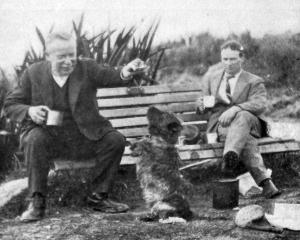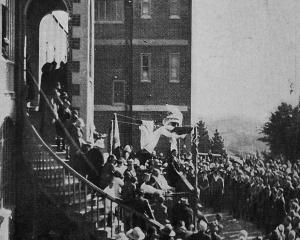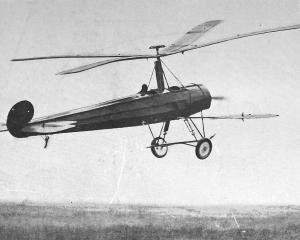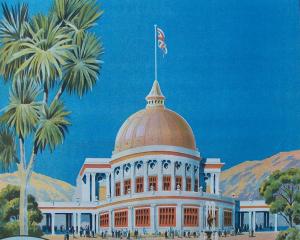Nothwithstanding that the majority were apparently under the age at which it is legal for them to be served with liquor, several of them returned to the sports ground late in the afternoon in a state bordering on intoxication. Horseplay led to violence, and several more or less serious encounters resulted, the language of the participants being the reverse of edifying.
A crowd quickly collected and for a few minutes surged and jostled about regardless of the property or personal safety of a number of women and children picnicking in the shelter of the trees. The arrival of a sergeant of police, and a constable put a timely end to the disgraceful affair, one or two of the worst offenders being unceremoniously hustled from the ground. No share of the blame for the occurrence can be laid at the door of the sports officials, who used every endeavour to pour oil on the troubled waters.
• Auckland: The complete absence of news concerning the whereabouts of the steel barquentine Mary Isabel, out some 44 days on the voyage from Whangape to Sydney with a cargo of 286,000ft of kauri timber, has intensified the anxiety felt as to the safety of the vessel. While concerned over the delay Mr R. S. Lamb, of the Lamb shipping line, the managing owners, told a reporter this morning that he was hopeful of the barquentine turning up safely.
She is admirably sound, a fine sea vessel and well provisioned, and there is a capable crew aboard of 10 men. The suggestion that the vessel had been dismasted was looked upon by Mr Lamb as possible, but he was of opinion that Captain Cooper would be equal to the occasion, and be able to rig a jury mast.
The discovery of a mast floating upright some 43 miles off Cape Farewell could not, he thought, be connected in any way with the Mary Isabel. Assuming that the barquentine had capsized, the load of timber she was carrying would cause her to float, and the mast would not be in the position described.
The fact, too, that the derelict was covered with marine growth showed that it must have been in the water for a longer time than the belated vessel has been out. The Mary Isabel also carried a reserve store of provisions, including biscuits, flour, and tinned meats, that would be sufficient to last over three months.
Mr Lamb was confidently of the opinion that the vessel would turn up safely, although he admitted that the circumstances at present gave cause for anxiety. The Mary Isabel is well known in the Australasian timber trade. She sailed from Whangape for Sydney on September 8 carrying a full cargo of sawn timber.
Ordinarily the run across the Tasman Sea would be made in from 10 to 16 days. As the vessel would probably encounter the strong equinoctial gale which prevailed soon after her departure, grave fears are being felt as to her safety. The Mary Isabel is a wooden vessel of about 300 tons register, and is owned in Auckland.
On the present voyage she sailed in charge of Captain Cooper, formerly of the Union Steam Ship Company's training ship Dartford.
The steamer Franklyn, which recently arrived at Sydney, reported having sighted a quantity of wreckage when approaching the Australian coast, and it is feared this may have some connection with the missing barquentine.
- ODT, 24.10.1911.












